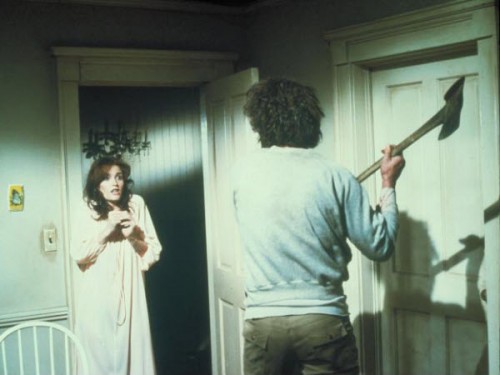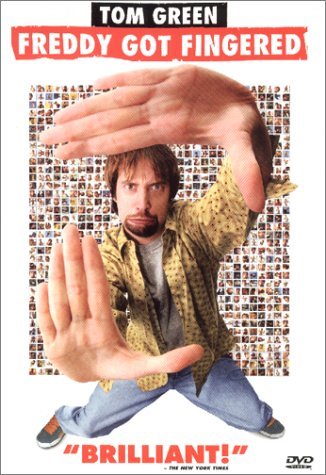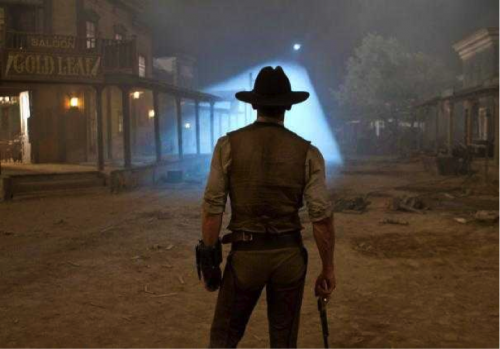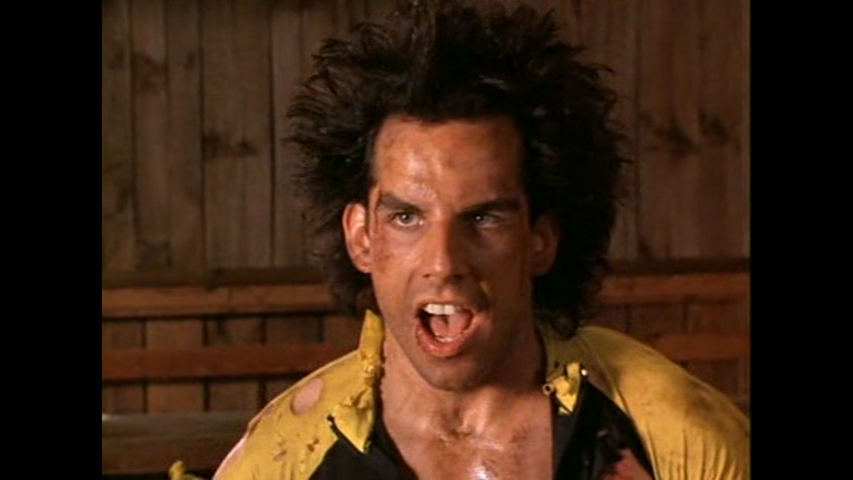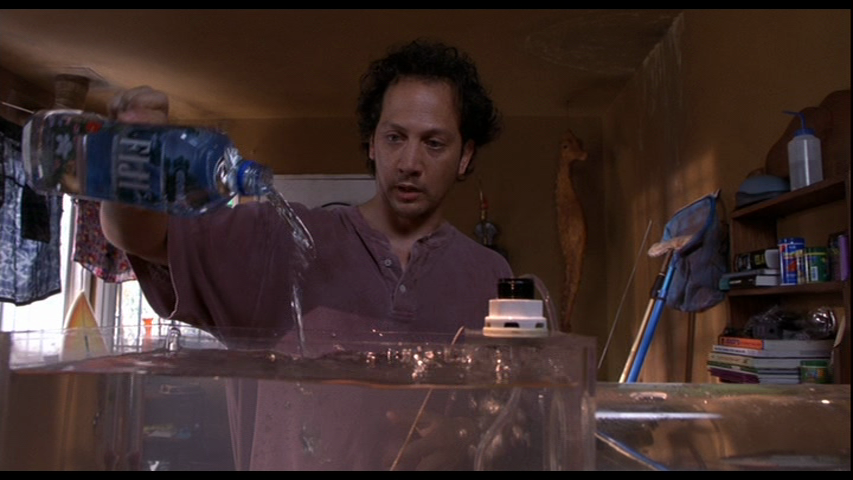Written by Sarah Smyth.
When talking to a group of high school students, Arnold Schwarzenegger apparently claimed, “I hate losers. I despise losers.” Multi-Mr. Universe and Mr. Olympia winner, Hollywood mega-star, entrepreneur and Governor, Schwarzenegger dedicates his life to the pursuit of the hyper-masculine ideal and American dream. Wealthy, powerful and incredibly buff, Schwarzenegger embodies the Western conceptualization of a successful man.
The men of the 2007 hit film, Little Miss Sunshine would be, in Schwarzenegger’s eyes, “losers.” Indeed, Michael Arndt, the film’s scriptwriter, claims this troubling quote provided the framework through which he constructed the characters and deconstructed the notion of “loser.” As each male character tackles a personal problem which has either implicit or explicit links to normative constructions of successful masculinity, Little Miss Sunshine examines the burden of this masculine ideal. So difficult to maintain yet so embedded in the social, cultural, economic, and political conceptualization of “manliness,” men who fail to embody this ideal inevitably become marked out as “losers.”

Little Miss Sunshine tells the story of the Hoover family, which includes the heroin-snorting grandpa, Edwin; the failing motivational speaker father, Richard; the suicidal uncle, Frank; politically mute brother, Dwayne; and stressed mother, Sheryl; as they go on a road trip from Albuquerque to California to support 7-year-old Olive as she competes in a beauty pageant. Along the way, they face many setbacks – some mechanical but many personal – as each character comes to face the primary difficulty in their life.
Before I examine the particular ways in which Little Miss Sunshine deconstructs the image of “failing” or “inadequate” masculinity through the male characters, it is crucial to examine the ways in which this impinges on women. For one, the film most obviously and explicitly highlights and examines the markers of success which are most acutely and destructively felt by women. For another, the metaphor of the beauty pageant which, as I will examine later, comes to define the identification of the “successful” masculine existence, is literalised in the film through Olive’s narrative. Although only seven years old, Olive’s body is subject to the social, cultural and familial surveillance which continues to monitor a woman’s body for the rest of her life, identifying her body as a “success” or “failure.” The opening credits make clear the juxtaposition between Olive’s body and the pageant queen’s body; whereas the pageant queen is “slim,” Olive is “chubby.” Later, after Olive orders ice-cream for breakfast, Richard explains to her that “the fat in the ice-cream will become fat in your body.” Even though Sheryl explains to Olive that “it’s OK to be skinny, and it’s OK to be fat if that’s what you want,” Richard makes clear that in order to be a winner, she must be thin, claiming, “Ok, Olive, but let me ask you this. The women in Miss America: Are they fat or are they skinny?” Despite the rest of the family’s encouragement to not listen to Richard and eat the ice-cream, Olive is visibly shaken by this and later asks her grandpa, “Am I pretty?” She’s upset because, as she says, “Daddy hates losers.”

The surveillance of Olive’s body eventually culminates as the family arrive at the beauty pageant. Exaggerated and (arguably) grotesque in fake tan, makeup, big hair and swimsuits, the other pre-pubescent contestants demonstrate the complex way in which we monitor young girls’ bodies. On the one hand, we may identify these bodies as freakish, suggesting our rigid policing of the presentation of the young female body, particularly with reference to sexuality. On the other hand, through Olive, we are also presented with another kind of bodily monitoring which, pitting her body against the other contestants, already marks her out as a unable to fulfill the requirements of being a beauty queen. Anticipating this assertion, Dwayne attempts to protect her by claiming, “I don’t want these people judging Olive.” Not embodying the beauty standards constructed by the pageant – slim, tanned, poised, with big hair and full make up – it’s clear that, within the context of the pageant, Olive’s body is identified as a “failure.”
In some ways, the male characters of the film embody a kind of privilege which makes them exempt from this monitoring and, by extension, marking out as a “failure.” At no point does the male body become subject to the superficial yet extremely destructive bodily surveillance in the film which so rigorously contours the female existence. In fact, the film suggests that male privilege not only makes them exempt from bodily monitoring but actually enables them the authority to construct the ideals through which female bodies are judged. During the ice-cream scene, Edwin tells Olive not to listen to her father because “I like a woman with meat on her bones.” The “success” of the female body, it seems, is still very much monitored by men. However, by presenting the ways in which the “failings” of each of the male character threaten to compromise his socially and culturally constructed masculinity, Little Miss Sunshine demonstrates the way in which his privilege is comprised by other conflicting factors.

In Slow Motion: Changing Masculinities, Changing Men, Lynne Segal claims, “Dominant ideals of masculinity come from social meanings which distinguish these ideals from what they are not.” Therefore, to be “masculine” is to not be “feminine,” “queer” or racially, ethnically or bodily “inferior.” In Little Miss Sunshine, the male characters attempt to battle various “weaknesses” that may comprise their masculine identity. Edwin attempts to maintain a tough exterior despite his aging body. He claims to “fuck a lot of women” and “still has Nazi bullets in [his] ass.” Yet, he cannot escape the fallibility of his body as a drug overdose eventually leads to his death. Dwayne, also, attempts to harden and toughen his body in preparation for joining the hyper-masculine world of the US Air Force Academy. He continually works out in the film and even takes a vow of silence, suggesting the determinacy of his ambition. However, his body also lets him down as he discovers he’s colorblind, shattering his dream to fly planes. Frank, on the other hand, feels threatened primarily through his academic failings. This is particularly significant because, as a gay man, the narrative could have easily slipped into exploring the “failings” of Frank’s masculinity through his queer identity. After all, as Leo Bersani claims in Is the Rectum a Grave?, phallocentrism aligns women and gay men, particularly through their bodies and the way in which they are penetrated. Therefore, dominant images of masculinity must deny these bodily “weaknesses.” However, rather than attempting to commit suicide due to any queer masculine crisis, Frank tries to kill himself after his academic rival, Larry Fisherman, won a genius award, threatening his position as the number one Proust scholar in the USA. Representing a particular image of masculine competitiveness, Frank fears being considered a “loser.”

Richard, however, most explicitly reflects the masculine anxiety of being marked out as a “loser.” A motivational speaker and life coach, throughout the film Richard attempts to secure a contract to turn his “Nine Steps to Success” program into a lucrative business. For Richard, winning is paramount. At one point, he tells Olive that luck has nothing to do with winning. Rather, it’s about “willing yourself to win.” In fact, he emphasizes the point of winning so much that he claims that “there’s no point going [to the pageant] unless you think you’re going to win.” Richard’s desire to win or, to put it another way, his fear about being marked as a “loser,” explicitly intersects with Schwarzenegger’s definition of “successful” masculinity. Both Richard’s program and narrative uphold the American Dream. Stating that prosperity, success, and upward social mobility can all be achieved through hard work, the American Dream advocates the kind of success represented by Schwarzenegger; despite not being a born-and-bred American, he is the ultimate self-made man. However, maintaining the Liberal and Neoliberal structures of economy which privileges the economic freedoms of individualism and laissez-faire, the American dream, will always privilege the straight white man.
As Lisa Duggan claims in The Twilight of Equality? Neoliberalism, Cultural Politics, and the Attack on Democracy, “Neoliberalism, a late twentieth-century incarnation of Liberalism, organizes material and political life in terms of race, gender, and sexuality as well as economic class and nationality, or ethnicity and religion.” In this way, Schwarenegger’s definition of the “loser,” a definition which is explicitly embedded in the notion of a “failing” masculinity, refuses to acknowledge the privileges afforded to white, heterosexual, able-bodied, economically privileged and cis-gendered men. In this way, it refuses to acknowledge that hard work does not always turn you into a winner. Despite his many privileges, Richard’s program, ironically, fails. For one, as his potential business partner says, “no one’s heard of you.” For another, Richard’s current economic situation compromises his privilege. The success of the program is paramount to keeping the family financially afloat. Money issues plague the family throughout the film – indeed, the reason they travel to the pageant in their van is because they can’t afford flights – and Richard promises that securing this deal will “start generating some income.” Failing to provide for his family, Richard fails to fulfill the traditional male (and masculine) role of the breadwinner. More crucially, however, Richard demonstrates that the American Dream is not available to everyone. Not everybody, it seems, can be a winner.

In the end, Dwayne sums up the problems they all face: “Fuck beauty contests. Life’s one long beauty contest: school, college, work… Fuck that.” The emphasis on external appearance – enormous wealth, a slim body, successful career, big house and beautiful partner – ensures that dominant Western, Neoliberal and hyper-masculine ideals are maintained, and anything that may compromise this – what Segal identifies as “inferior”- remains rigidly monitored and surveyed. However, by “failing” to conform to these standards, by saying “fuck the beauty pageants,” and by willing ourselves to lose, we may find a way to resist these ultimately oppressive and destructive ideals.
______________________________________
Sarah Smyth is a staff writer at Bitch Flicks who recently finished a Master’s Degree in Critical Theory with an emphasis on gender and film at the University of Sussex, UK. Her dissertation examined the abject male body in cinema, particularly focusing on the spatiality of the anus (yes, really). She’s based now in London, UK and you can follow her on Twitter at @sarahsmyth91.










